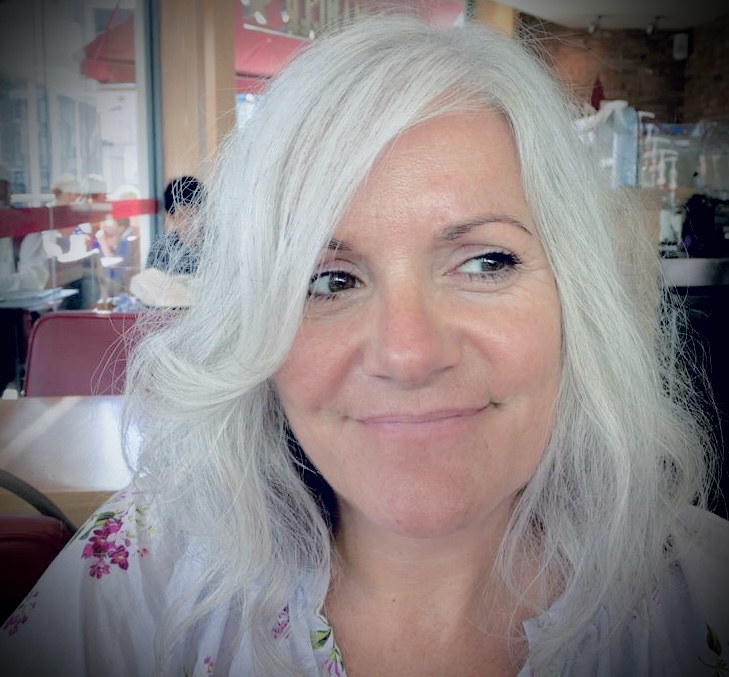Welcome to Lenham Counselling
A confidential space to explore the thoughts, feelings and challenges in your life
Counselling & Psychotherapy for individuals in a safe, comfortable and private setting
Welcome, and thank you for visiting Lenham Counselling.
My name is Lisa Ellis and I am a Therapist with over 17 years experience of providing both short- and long-term therapy to individuals in Kent. I provide individual Counselling for adults and young people, and Counselling Supervision for Therapists, trainee Counsellors and Pastoral Teams in Schools. I am based in Lenham, and my Therapy Rooms are easily accessible to the surrounding areas of Maidstone, Sittingbourne, Faversham and Ashford in Kent. I also offer Counselling and Therapy Services online, using a Zoom platform.
We all experience times of difficulty in our lives, when events or relationships feel overwhelming, or we can feel a loss of direction or purpose. Often, difficult times will affect Mental Health and Emotional Wellbeing, and talking to a trained Counsellor can help us make sense of those challenging times and offer a way through them, moving towards a better understanding of ourselves and our emotions.
I am an Accredited Member of British Association of Counselling and Psychotherapy (BACP) and hold a current advanced DBS for Counselling children, young people and adults
Maidstone ~ Ashford ~ Sittingbourne ~ Faversham

Speak in Confidence
In our modern and often complex world pressures can be overwhelming. Whether you are feeling helpless and stuck; having difficulty understanding your emotions or struggling to find a clear path forward, Counselling might be right for you. Counselling takes place in a safe space and without judgment. In the therapy space thoughts feelings and emotions can be expressed freely and in confidence
Maidstone ~ Ashford ~ Sittingbourne ~ Faversham
A problem shared...
Trouble with a relationship; anxiety or panic attacks; mood swings or depression? Negative or intrusive thoughts? Possibly deep rooted, unresolved trauma. Counselling can give us a set of tools we can use to help gain a better understanding of what’s causing these difficulties, enhancing self awareness and facilitating change.
Maidstone ~ Ashford ~ Sittingbourne ~ Faversham
Step toward wellness
Anxiety, Depression, Stress, Bereavement, relationships, loneliness: Working together I can help you gain greater insight into the emotional difficulties you are facing, help you understand your unique experience of the world using a range of therapies to help you work towards your desired outcomes
Maidstone ~ Ashford ~ Sittingbourne ~ Faversham
How can counselling help you?
Life brings many challenges, and it is understandable that at times we might look for support in facing them. As a counsellor my role is to provide space and guidance to help you on your journey of self-discovery; to enable you to examine your life and make new, meaningful choices within it.
I offer a chance to explore the difficulties you are experiencing in an objective, safe and confidential environment. Together we can explore your situation in a way that leads to fresh perspectives - and perhaps a new understanding of yourself. Counselling isn’t about giving you solutions or advice, but rather a process designed to enhance self-awareness, empower choice and facilitate change.
My therapeutic approach is Integrative. This ensures I am working with your unique experience of the world using a range of therapies to help you to achieve your desired outcomes.
What issues can counselling help with?
People come to me for help a wide range of issues. Here are a few of the more common difficulties that can be supported through counselling:
Feelings of stress or anxiety
Panic attacks
Relationship problems
Grief, loss or bereavement
Problems with addiction
Trauma and post-traumatic stress
Abuse
Depression
Problems with confidence or self-esteem
Anger management
Issues relating to sexuality
Difficulties at work or in retirement
Problems with family or school life
Divorce or Separation
Qualifications
Level 6 PG Certificate Counselling Supervision
Diploma Integrative Counselling
Advanced Certificate Person Centred Couples Counselling
I am an Accredited Member of British Association for Counselling and Psychotherapy (BACP), which means I have met their criteria for qualified and experienced therapists and work in accordance with their ethical framework.
My location
I work from private offices located in a quiet part of ME17, and see clients from Maidstone, Sittingbourne, Faversham, and Ashford as well as surrounding areas connecting to M20 and A20
In addition to providing face-to-face therapy, I also offer online Counselling sessions for clients via Zoom. Contact me to find out more about how online therapy works.
Availability
Counselling sessions for individuals last 50 minutes, usually taking place on a weekly basis. I also provide a limited number of Counselling sessions for those on low-income or for counselling students; contact me to enquire about availability.
Evening and weekend appointments available

Fees
Counselling Sessions
Trainee Rate
£55
£45
Counselling Supervision
Trainee Rate
£80/90-min
£60/90-min
Get in touch
Feel free to contact me if you have any questions about how therapy works, or to arrange an initial Counselling assessment appointment. This enables us to discuss the reasons you are thinking of coming to therapy, whether it could be helpful for you and whether I am the right therapist to help.
You can also call me on 07834838176 if you would prefer to leave a message or speak to me first. I am happy to discuss any queries or questions you may have prior to arranging an initial appointment.
All enquires are usually answered within 24 hours, and all contact is strictly confidential and uses secure phone and email services.
Frequently asked questions
Counselling is usually a good way to help with a current problem; something that can be explored and - hopefully - resolved within a limited number of sessions. Over a certain number of weeks the understanding of the problem improves and a way forward becomes clear. Psychotherapy often describes work that goes a bit deeper, towards more substantial life issues and problems having a deeper effect on the client’s life. Therapy for trauma for instance often requires a long-term approach, so the number of sessions can be open-ended.
Which option is most suitable depends on the client and the difficulties they are facing.
Everything that is said within the counselling room is private - this is one of the main ways counselling and psychotherapy differ from talking to a friend or relative. Once you are comfortable with the format of weekly therapy sessions and the safe space they provide, you will find the freedom to speak in confidence is of great value.
Note that there are some situations where you may be a risk to yourself or others, and there the law requires that I notify an authority; in these cases I may not be able to keep total confidentiality. Breaking confidentiality is very rare though, and only happens after the person concerned has been informed.
Usually I am asked this question by people who are nervous about entering into counselling, or when they are looking for support in coming to see a therapist. This anxiety is understandable, but a key aspect of therapy is that you should feel free to talk about any issues you feel are important to you. Having someone else with you who can be connected those issues makes this opening-up more difficult, so for this reason I do not see clients accompanied by friends or family.
How long a period of counselling lasts will vary from person to person and depend on the depth of the issues they are facing. For some people a couple of counselling sessions helps to bring their problems into focus, and they feel ready to move forward; other problems may require more of an open-ended approach.
Before we begin any work we will agree on the number of counselling sessions we’ll undertake, and at the end of that number review our progress. As long as we both agree further therapy will be of benefit to you, sessions can continue.
My aim is to offer a first appointment - known as a counselling assessment - within 1-2 weeks. Then we would arrange a set number of counselling sessions to take place at the same time every week, that is convenient for you and where I have availabity. How quickly these sessions can begin will depend on the availabity of that free ‘slot’.
You may not know it, but you’ve already taken the first step...
It can be difficult making the decision to contact a therapist, but in my experience people will struggle with a mental health issue, a personal crisis or problems with relationships for much longer than is healthy. Sometimes a friend has proved a source of comfort, but this help can only go so far. Realising that resolving a problem requires something more means you have actually already taken the first step towards improving your life and wellbeing
How I see it...
I have worked as a counsellor for a number of years now, and have come to believe that unless someone has the desire to improve their wellbeing and undertake the work, therapy will likely be of limited value. The skill of a counsellor is in helping people to help themselves... the person coming to therapy has to want that help, and be prepared to act on it.
A fascinating journey begins here...
Seeing a therapist is not a passive act; it isn’t like visiting the doctor to be measured, assessed and treated. You don’t come away after one appointment with a pill to take and the responsibility ends there. Counselling and therapy are journeys with a guide through a familiar but somehow unusual land - a landscape involving trauma, depression, difficult emotions, negative thought processes and loss; they can be rewarding, sometimes confusing and often revelatory... what they aren’t is passive!
©2021 Lisa Ellis
powered by WebHealer
